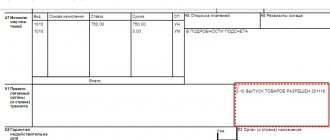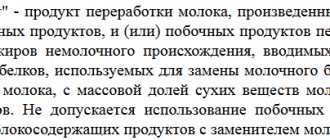Employee tax status
A tax resident for tax purposes is a person who stays in Russia for more than 183 days over the next 12 consecutive months.
Accordingly, citizens who stay in Russia for less than 183 calendar days over the next 12 consecutive months are considered tax non-residents. Even though a Russian citizen is initially considered a tax resident, when determining residency, a person’s citizenship does not matter (letter of the Russian Ministry of Finance dated March 19, 2012 No. 03-04-05/6-318). A Russian citizen can be a tax non-resident, and a foreigner can be a resident. Moreover, the tax status may change several times during the tax period.
An employee may lose his tax resident status if he was on a long business trip abroad. Therefore, it is in the interests of the employer to check the status of any person when hiring, even if he is a Russian citizen.
Competencies of the Federal Tax Service and the Federal Customs Service: accounts abroad and legality of transactions
The design of the provisions of Law No. 173-FZ regarding the regulation of foreign exchange transactions is such that this source of law provides a closed list of permitted foreign exchange transactions. All operations that are not included in this list are illegal.
Monitoring of all currency transactions is within the competence of the Federal Tax Service and the Federal Customs Service (subparagraph “b”, paragraph 2 of Decree of the President of the Russian Federation dated 02.02.2016 No. 41). As well as the imposition of sanctions for violations of relevant legislation.
You can find out which currency transactions between currency residents of the Russian Federation are allowed and which are not in the article “Currency transactions between residents and non-residents”.
In accordance with paragraph 1 of Art. 15.25 of the Code of Administrative Offenses of the Russian Federation, carrying out currency transactions not expressly permitted by the provisions of Law No. 173-FZ entails a fine - for both individuals and legal entities in the amount of 75 to 100% of the amount of the currency transaction carried out on a foreign account.
Let us now consider the order in which the Federal Tax Service can, in practice, carry out actions that reflect the agency’s involvement in inspections of persons holding foreign accounts.
How to set a 12 month period
The 12 consecutive months required to establish a person's tax status are not the calendar year from January 1st to December 31st. This period may begin in one tax period and continue in another. So, if tax status is determined on August 30, 2021, then the 12-month period begins on August 30, 2018, and ends on August 29, 2021.
During the calendar year, the organization must monitor the tax status of employees. When paying wages - on each date of its accrual, that is, on the last day of the calendar month. On the day of payment of income - for other types of income, for example, vacation pay.
Advance payments for a patent are more than personal income tax
The organization employs a foreign citizen who has a patent.
The Federal Tax Service confirmed that the employee made advance payments. Since these payments exceeded the amount of personal income tax on the employee’s salary, tax was not withheld when paying wages. How to fill out the 2-NDFL certificate correctly? The procedure for filling out the new 2-NDFL form contains a fairly clear algorithm of actions in the described situation. Thus, according to clause 4.3 of the Procedure, in the “Total amount of income” field in Section 2 of the certificate, the total amount of accrued and actually received income is indicated, excluding deductions. Accordingly, this field must reflect the total amount of wages accrued to the employee in 2021.
Further, as stated in paragraph 4.4 of the Procedure, the indicator in the “Tax Base” field of Section 2 of the certificate corresponds to the amount of income indicated in the “Total Amount of Income” field, reduced by the amount of deductions reflected in Section 3 and in the appendix to the certificate. In most cases, “patent” foreigners do not have the right to deduction, since they are not tax residents of the Russian Federation. Thus, if in the described situation the foreign worker does not receive deductions, the amount of the salary for 2018 must also be reflected in the “Tax base” field.
According to clause 4.5 of the Procedure, the total calculated tax amount is indicated in the “Amount of tax calculated” field in Section 2 of the certificate. And clause 4.7 of the Procedure states that the field “Amount of fixed advance payments” reflects the amount of such payments accepted to reduce the amount of calculated tax. Accordingly, in the “Calculated tax amount” field, you need to enter the calculated personal income tax amount without reducing it by the amount of advance payments. And at the same time, in the “Amount of fixed advance payments” field, you must enter the amount of fixed advance payments by which the tax is reduced.
In the situation under consideration, advance payments are greater than the amount of personal income tax calculated from the salary. This means that the reduction will be carried out only in part of the calculated personal income tax. The excess of the amount of fixed advances over the amount of tax is not an overpayment (clause 7 of Article 227.1 of the Tax Code of the Russian Federation). Consequently, both in the field “Amount of tax calculated” and in the field “Amount of fixed advance payments” the amount of personal income tax calculated from the salary of the “patent” employee must be indicated.
Based on clause 4.6 of the Procedure, in the “Amount of tax withheld” field in Section 2 of the certificate, the total amount of tax withheld is indicated. In the example given, the employer did not withhold personal income tax, since the calculated amount of tax was completely covered by advance payments. This means that you need to enter zero (“0”) in this field (clause 1.16 of the Procedure). Also, zero (“0”) should be indicated in the “Tax amount transferred” field. According to clause 4.8 of the Procedure, this field displays the total amount of the transferred tax. However, in our case, the tax agent did not transfer personal income tax to the budget.
Fill out and submit 2-NDFL online using the new form Submit an application
How to calculate 183 days
The number of days an employee stays in the Russian Federation is determined by summing up all calendar days in which he was in Russia during this period. When calculating them, days are taken into account - calendar dates of entry and exit, since on these days the person is actually on the territory of Russia.
183 days should not flow continuously (letter of the Federal Tax Service of Russia dated August 30, 2012 No. OA-3-13 / [email protected] ). They may be interrupted for periods of vacations, business trips, etc.
When calculating 183 days of stay in Russia, the time spent abroad is not included in their number, except for short-term (less than six months) trips for treatment and training - they are included. Mandatory condition: immediately after completing training or treatment, the employee must return to the Russian Federation.
But if, under an agreement with a foreign educational institution, training lasts more than six months, when calculating the days a person is in Russia, the entire period of his training is not taken into account (letter of the Ministry of Finance of Russia dated October 8, 2012 No. 03-04-05/6-1155).
All days when a person was treated abroad or underwent training must be documented: copies of passports with border control marks, contracts with medical or educational organizations or certificates from them. The certificates must indicate the time of treatment or training.
An important condition for periods of short-term treatment or training to be counted during a person’s stay in the Russian Federation is the purpose of the trip. If he traveled abroad for another purpose, but while abroad underwent treatment or training, these days cannot be included in the period confirming residence (letter of the Ministry of Finance of Russia dated September 26, 2012 No. 03-04-05/6- 1128).
Get access to your account: Federal Tax Service tools today
To find out that a particular citizen is using a foreign account (and, perhaps, for commercial purposes), the Federal Tax Service can, for example:
1. By requesting from a Russian bank - in the manner specified in clause 2 of Art. 86 of the Tax Code of the Russian Federation - statements from a citizen’s account, which may reflect incoming or outgoing transactions on the citizen’s foreign account.
2. Having discovered information about a citizen’s foreign accounts during an audit of the activities of an individual entrepreneur or organization (for example, in the form of transfers of a person’s salary to a foreign account).
3. Receiving information about foreign accounts of citizens from other authorized authorities, for example, the Foreign Intelligence Service, in the manner of interdepartmental interaction.
In turn, the Federal Tax Service can detect the presence of a foreign account with an organization:
- reviewing various primary documents during tax audits (they may reflect the details of a Russian taxpayer in a foreign bank);
- receiving information about Russian taxpayers through the Protocol for the exchange of tax information between member states of the EAEU (accounts in these states are also classified as fully foreign - at least until the legislation of the Russian Federation defines any exceptions for them);
- receiving information about foreign accounts of organizations from other Russian authorized authorities.
The gradual integration of the Russian financial system and the legislation governing it with various international institutions contributes to the solution of the tasks facing tax authorities in terms of audits of foreign account holders.
Among the most notable initiatives in this direction is the adoption by Russia of the Common Reporting Standard (CRS), operating within the framework of the Convention on Mutual Administrative Assistance in Tax Matters of 1988. Let's consider the features of its application in more detail.
Simultaneous application of different personal income tax rates depending on the type of income of an individual
As a general rule, the income of non-resident individuals of the Russian Federation is taxed at a personal income tax rate of 30%. However, for income from labor activities of designated non-residents - highly qualified foreign specialists, citizens of EAEU countries, etc., a rate of 13% is applied.
The labor activity of a foreign citizen is understood as work in Russia on the basis of an employment or civil law contract for the performance of work or provision of services (Article 2 of Federal Law No. 115-FZ of July 25, 2002 “On the legal status of foreign citizens in the Russian Federation”). However, the Tax Code of the Russian Federation does not specify what exactly is considered income from labor activity. Therefore, it is not always clear to the employer at what rate personal income tax should be withheld from certain payments to this category of employees.
| 1C:ITS For more information about what income of highly qualified foreign non-resident specialists is subject to personal income tax at a rate of 13%, see the reference book “Income Tax for Individuals” in the “Taxes and Contributions” section. |
Example 1
| Non-resident employee of the Russian Federation S.S. Gorbunkov, who has the status of “Highly Qualified Foreign Specialist” and works under an employment contract, was accrued in January 2021: a salary of 100,000 rubles, dividends of 100,000 rubles, and a subscription to a fitness club of 100,000 rubles. |
Salary payments, vacation pay, sick leave payments and business trips clearly relate to work activities, and personal income tax is calculated at a rate of 13%.
Dividends do not apply to income from employment, and the personal income tax rate is 15%. The personal income tax rate on in-kind income from paying for a subscription to a fitness club is 30%.
Accordingly, in January personal income tax was calculated in the amount of: 13,000 rubles, 15,000 rubles. and 30,000 rubles (Fig. 2).
Rice. 2. Certificate 2-NDFL
Consequently, form 2-NDFL contains three Sections 3 “Income taxed at the rate...” (Fig. 3).
Rice. 3. Printed form of certificate 2-NDFL
Results
The Federal Tax Service of the Russian Federation and other departments, which have primarily taken over the powers of Rosfinnadzor, may be interested in carrying out inspections of individuals and legal entities holding foreign accounts. The interest of the Federal Tax Service of the Russian Federation may be associated, first of all, with identifying violations by citizens and organizations of the requirements of Law No. 173-FZ, as well as the norms of tax legislation. The Federal Tax Service of the Russian Federation can, within the framework of various mechanisms, carry out interdepartmental interaction with the Federal Customs Service, the Federal Treasury and other government bodies.
Starting from 2021, the tools of the Federal Tax Service of the Russian Federation - still quite limited - in terms of gaining access to information about foreign accounts of citizens and organizations will be supplemented with the ability to request information of interest in the international CRS system. In this case, information will be provided from foreign colleagues of Russian tax authorities.
You can learn more about the mechanisms for involving the Federal Tax Service in the activities of Russian taxpayers related to their interaction with foreign citizens and organizations in the articles:
- “The foreign counterparty returned the advance. What about VAT for a Russian buyer? ;
- “Withhold personal income tax from the vacation pay of a highly qualified foreign specialist at an increased rate.”
You can find more complete information on the topic in ConsultantPlus. Free trial access to the system for 2 days.
Whose account abroad will the tax office check based on the results of 2016?
So, the most likely candidates for a tax audit at the end of 2021 may be:
1. Individuals and organizations required to provide reporting on foreign accounts, respectively, before June 1, 2021 and quarterly, but did not provide it.
2. Individuals and organizations that have foreign accounts according to the Federal Tax Service, but have not informed the department about the availability of these accounts.
If it is discovered that these entities fail to submit reports, the Federal Tax Service (based on the results of an audit, in many cases as part of additional tax control) will be authorized to impose a fine based on the provisions of Art. 15.25 Code of Administrative Offenses of the Russian Federation.
3. Individuals and organizations that fail to fulfill their obligations to pay taxes on transactions in foreign accounts (or give the Federal Tax Service reason to suspect them of failure to fulfill these obligations in full).
Other fines are already in effect here - for non-payment or incomplete payment of taxes (Articles 119, 122 of the Tax Code of the Russian Federation). Failure to submit a declaration on income reflected in foreign accounts will result in a fine under Art. 15.5 Code of Administrative Offenses of the Russian Federation.
Information about relevant entities can be transmitted to the Federal Tax Service through various channels. For example, in the order of interdepartmental interaction between the Federal Tax Service and the Federal Customs Service.
How to declare a change of status
Income from securities is taxed at different rates for both residents and non-residents. As a general rule, the income of residents is taxed at a rate of 13%, and non-residents at a rate of 30%. Dividends for residents are taxed at a rate of 13%, for non-residents - at a rate of 15%. Also, a separate rate is provided for coupons on Russian bonds issued after 01/01/2017: the part of the coupon that exceeds the key rate of the Central Bank by more than 5% is taxed at a rate of 35% for residents, and at a rate of 35% for non-residents. rate 30%. Therefore, simply paying another 17% on top of the amount withheld by the broker is not always correct.
There are two ways to get out of this situation: contact a broker or submit a declaration to the Federal Tax Service.
CRS as a promising tool of the Federal Tax Service: nuances of applying the standard
The CRS standard has currently been adopted by 80 states, many of which are offshore. The standard allows interested government departments, including the Federal Tax Service of the Russian Federation, to request various information about Russian taxpayers from their respective jurisdictions using unified algorithms.
In practice, the Federal Tax Service of the Russian Federation will be able to implement the capabilities of this standard from 2021. By 2021, the Russian legislator, as well as the responsible technical services, will need to bring the regulatory framework and technological infrastructure of the Federal Tax Service and other departments responsible for data exchange within the CRS system into compliance with international requirements.
Russian tax authorities will be able to exchange data with foreign colleagues automatically. Tax services of other states that have information about Russian citizens and organizations will provide the first information about them to the Federal Tax Service, as expected, by September 2021. A similar obligation - to provide data on foreign individuals and legal entities to the relevant national jurisdictions - is established for the Federal Tax Service of the Russian Federation.
Information that will be exchanged via CRS includes:
- information about bank accounts of citizens and organizations, deposits, investments;
- Full name and addresses of bank account owners, their Taxpayer Identification Number;
- financial indicators for accounts: balance, accruals on deposits, various payments.
The main reason for using CRS resources for Russian tax authorities and other government agencies is the disclosure of shadow offshore schemes, as well as ways of illegally reducing taxes by businesses. But it is possible that specialists of the Federal Tax Service of the Russian Federation will actively use this international resource to identify facts of use of foreign financial infrastructure by ordinary citizens of the Russian Federation.
If the above grounds for inspections exist, the Federal Tax Service will have at its disposal an effective tool that will allow it to obtain reliable information about the financial transactions of Russians using foreign accounts during inspections. At the same time, the Federal Tax Service’s receipt of information about the foreign accounts of Russian citizens from the CRS can, in fact, be an independent reason for a tax audit.
How to become a tax resident with a residence permit?
The conditions for recognizing an individual as a tax resident are specified in paragraph 2 of Article No. 207 of the Tax Code of Russia. Obtaining a residence permit does not automatically change the status from non-resident to tax resident. In order to obtain a certificate of receipt of this status, you need to contact the appropriate department at the place of registration or registration.
In order to have the necessary documents, you need to submit an application to the Interregional Inspectorate of the Federal Tax Service of the Data Center (centralized data processing) of the Russian Federation.
Tax residence of an individual
The taxation of an individual's income is determined by his tax status. The types of income subject to taxation, the size of the applied rate, and the possibility of using tax deductions depend on the tax status. An interview with Sergei Razgulin, 3rd Class Actual State Advisor of the Russian Federation, is devoted to the issues of determining tax residency and calculating tax in the event of a change in this status during the year. Who are individuals – tax residents of the Russian Federation?
Clause 2 of Article 207 of the Tax Code of the Russian Federation recognizes as tax residents individuals who are actually in the Russian Federation for at least 183 calendar days over the next 12 consecutive months.
At the same time, military personnel and civil servants sent to work abroad are considered for the purposes of the Tax Code of the Russian Federation as tax residents of the Russian Federation. In addition, in 2015, features are provided for the recognition as tax residents of individuals who were in the Republic of Crimea and Sevastopol in 2014.
Does tax residency depend on citizenship?
According to the Tax Code of the Russian Federation, no. A Russian citizen may not be a tax resident of the Russian Federation. The following can be recognized as tax residents of the Russian Federation: a foreign citizen, a stateless person.
At the same time, it is necessary to take into account the agreements the Russian Federation has with foreign countries. An international agreement may establish a different procedure for determining residence. In particular, provide options for resolving situations where an individual is a resident of both Contracting States. For example, in such a situation, recognize a person as a resident of the Contracting State in which he has permanent residence.
On January 1, 2015, the Treaty on the Eurasian Economic Union dated May 29, 2014 came into force. Taking into account Article 73 of the Treaty, personal income tax is imposed on the income of a resident of a state party to the Treaty (Republic of Belarus, Republic of Kazakhstan) from employment on the territory of the Russian Federation from the first day of work under an employment contract at a rate of 13%. That is, at the rate provided for in Article 224 of the Tax Code of the Russian Federation for residents.
From January 2, 2015, this procedure also applies to residents of the Republic of Armenia. In the near future, it will extend to residents of the Kyrgyz Republic.
It seems that the application of a 13% rate to income from employment in the Russian Federation does not mean automatic recognition of persons from the above states as tax residents of the Russian Federation.
Their tax status is determined in a general manner - depending on the time spent in the Russian Federation. Therefore, if at the end of the tax period they are not recognized as tax residents of the Russian Federation, their income is subject to taxation at a rate of 30%. Information about the impossibility of withholding the taxpayer's debt must be submitted to the tax authority in the manner established by paragraph 5 of Article 226 of the Tax Code of the Russian Federation.
What period for determining the time of residence is taken as 12 months?
When determining an individual's status, any continuous 12-month period must be taken into account. The specified period may begin in one tax period and end in another (for example, from April 15, 2014 to April 14, 2015). Moreover, during the specified period, 183 days themselves can be accumulated in the aggregate (summed up) - it is not necessary that they be spent in the Russian Federation continuously.
Dates of entry and exit are taken into account when calculating the days of stay in Russia.
At the same time, treatment, training (no more than 6 months) outside the Russian Federation, and since 2015, also performing work (providing services) in offshore hydrocarbon fields (regardless of the duration of work) does not interrupt the period of stay in the Russian Federation.
Is it possible to immediately apply a 13% rate if the organization is sure that the individual will work in the Russian Federation for more than six months in the current tax period?
No, the expected period of stay of an individual in the Russian Federation is not taken into account (letter of the Ministry of Finance of Russia dated November 15, 2007 No. 03-04-06-01/394). If the tax authority reveals untimely withholding of tax, the fine under Article 123 of the Tax Code of the Russian Federation will be 20% of the unwithheld amount.
Before the expiration of 183 days of stay in the Russian Federation, the income of an individual must be taxed as the income of a non-resident - as a general rule, at a rate of 30%. Only for dividends and labor income of certain categories of non-residents, paragraph 3 of Article 224 of the Tax Code of the Russian Federation establishes reduced rates.
How to confirm tax residence for personal income tax?
The Tax Code of the Russian Federation does not establish a list of documents confirming the actual presence of individuals in the Russian Federation. Responsibility for the calculation, withholding and transfer of tax, including the correct determination of the tax status of the income recipient, lies with the tax agent.
Law enforcement practice is based on the right of a tax agent to demand from the taxpayer any documents drawn up in accordance with the law, allowing to establish the number of calendar days of a given person’s stay on the territory of Russia. Such documents include certificates from the place of work, issued on the basis of a work time sheet, copies of a passport with marks from border control authorities about crossing the border, and a certificate of registration at the place of temporary stay.
It is advisable for the tax agent to retain documents submitted by an individual that relate only to confirmation of tax status at least until the end of the relevant current tax period.
What if the taxpayer reports that in the period preceding the payment of income, he was abroad for treatment?
The period of treatment up to 6 months inclusive is counted towards the period of stay in Russia. Treatment (receipt of medical services) can be confirmed by an individual by an agreement with a foreign medical organization, certificates of the time spent on treatment, or marks in a foreign passport.
What should a tax agent do if an individual refuses to provide documents confirming his residence?
When there are no supporting documents, and there are reasonable doubts that a person is a resident, the tax agent is recommended to apply a rate of 30% rather than 13%. At least until mid-July (if the person started working in January). If the taxpayer subsequently provides the tax agent with documents indicating that at the time of payment of income he was a tax resident of the Russian Federation, the tax amounts withheld at the rate of 30% turn out to be overpaid.
Let's assume that the employee is recognized as a tax resident. Is it necessary to check his status as a resident in the future?
Tax status is determined on each date the income is paid. This rule should be followed if there is reason to believe that the residence of an individual may change during the year.
The final tax status of an individual, which determines the taxation of income received by him during the tax period, is established based on the results of the tax period (calendar year). But in most cases, before the end of the tax period, one can conclude that the status of an individual will not change, and accordingly choose the rate to be applied to his income: 13% or 30%.
It should be borne in mind that the tax status changed at the end of the year applies to income received from January 1 of the year, and not from the moment of such change.
Please note that recalculation is made only for the tax period in which the person’s status has changed. For the previous tax period, tax obligations are not revised.
It may happen that a person recognized as a tax resident on the dates of payment of income terminates relations with the tax agent until his final status is determined based on the results of the current tax period. In this case, a possible subsequent change in the tax status of an individual does not affect the duties of the tax agent.
Is it necessary to check the tax status when concluding civil contracts?
Of course it is necessary. At the same time, difficulties arise for the tax agent, especially when a long-term civil law agreement has been concluded with an individual, and there is no opportunity to verify the individual’s presence at the workplace or is not expected at all (for example, in a transaction to lease non-residential premises from an individual who is not individual entrepreneur). Therefore, recommendations for a tax agent to check the status of the income recipient are relevant for each payment of income before the individual’s final tax status is formed in the tax period.
What if an individual sells his apartment in the Russian Federation and at the same time permanently resides abroad?
Income from the sale of property located in Russia is subject to taxation in the Russian Federation.
Clause 17.1 of Article 217 of the Tax Code of the Russian Federation exempts from taxation income received by tax residents of the Russian Federation for the corresponding tax period from the sale of residential houses, apartments, rooms, including privatized residential premises, dachas, garden houses or land plots and shares in the said property located in taxpayer's property for 3 years or more.
If an individual stays in the Russian Federation for less than 183 days in a tax period, such person is not recognized as a tax resident of the Russian Federation.
Income from the sale of real estate owned by him in a given tax period will be subject to taxation in full. For such income, an individual must submit a declaration and pay tax on his own.
Tax authorities will be interested in fulfilling the obligation to pay tax by receiving information from Rosreestr authorities about the transfer of ownership of real estate.
The employee became a tax resident during the tax period. How can he return the amount of tax withheld at a rate of 30%?
If the employee continues to work for a tax agent, then during the remaining time until the end of the tax period, the amount of excess tax withheld will be counted towards the payment of tax at a rate of 13% (no tax will be charged). This approach is reflected in the letter of the Ministry of Finance of Russia dated August 12, 2011 No. 03-04-08/4-146.
The Tax Agent of the Russian Federation does not provide for the ability of a tax agent to offset taxes excessively withheld from the income of an individual in one period against the fulfillment of his obligation to pay tax in another period.
The return of the tax amount to the taxpayer, in connection with the recalculation at the end of the tax period in accordance with his acquired status of tax resident of the Russian Federation, is made by the tax authority in the manner specified in paragraph 1.1 of Article 231 of the Tax Code of the Russian Federation and Article 78 of the Tax Code of the Russian Federation.
An individual must submit to the tax office a declaration, documents on overpaid tax, and confirmation of his tax status.
What actions must be taken if an employee changes from a resident to a non-resident?
In this case, personal income tax must be recalculated upward - from 13 to 30% and without providing the employee with tax deductions (standard, social, property). The recalculation is done from the beginning of the calendar year in the month in which it became clear that the employee’s tax status for the current year can no longer change. Personal income tax amounts calculated from the beginning of the year at a rate of 13% are sent to offset the tax calculated at a rate of 30% (clause 3 of Article 226 of the Tax Code of the Russian Federation).
If the organization was unable to withhold the entire amount of personal income tax recalculated at a rate of 30%, then no later than January 31 of the following year it is obliged to notify the inspectorate and the employee about this fact and the amount of debt.
Let's assume a different situation. The organization sent workers to work abroad, but continued to withhold taxes from their wages...
The income of a non-resident is taxed in the Russian Federation only if it is received from sources in the Russian Federation - from Russian persons.
Income from performing work outside the Russian Federation refers to income from sources outside the Russian Federation. Therefore, such income received by non-residents is not taxed in the Russian Federation, regardless of who made the payment (letter of the Ministry of Finance of Russia dated 02/09/2015 No. 03-04-05/5273). In this case, the organization made a mistake not in determining the status of the employee, but in determining the source of income. Amounts of tax excessively withheld by the organization must be returned to its employees in accordance with paragraph 1 of Article 231 of the Tax Code of the Russian Federation. A similar refund procedure applies if the organization, upon presentation by an individual of documents confirming his permanent presence on the territory of the Russian Federation, withheld tax at a rate of 30%. This is not a recalculation of amounts due to a change in status, but an excessive collection of tax due to its incorrect determination.
Since 2015, tax resident status has begun to play a big role. The Tax Code of the Russian Federation includes provisions on a controlled foreign company, on the actual recipient of income...
Absolutely right. Since 2015, income received from sources outside the Russian Federation includes the amount of profit of a controlled foreign company. This became income for tax residents of the Russian Federation, recognized in accordance with the Tax Code of the Russian Federation as controlling persons of this company (clause 8 of paragraph 3 of Article 208 of the Tax Code of the Russian Federation).
When paying income to a foreign company from sources in the Russian Federation, it can indicate that the actual recipient of the income (beneficiary) is an individual - a tax resident of the Russian Federation. In this case, taxation of the paid income is carried out in accordance with part two of the Tax Code of the Russian Federation (Article 7 of the Tax Code of the Russian Federation).
The implementation of these provisions of the Tax Code of the Russian Federation will require tax residents of the Russian Federation to submit tax returns and pay tax on the income due to them.
How to confirm Russian tax residency to offset foreign taxes?
For the purposes of applying agreements on the avoidance of double taxation, including the payment of taxes provided for by these agreements on the territory of the Russian Federation, an individual may obtain confirmation of tax residence of the Russian Federation. To confirm the actual status of a tax resident of the Russian Federation, you should contact the Interregional Inspectorate of the Federal Tax Service for centralized data processing.
reporting tax reporting
Send
Stammer
Tweet
Share
Share
Determination of the status of resident and non-resident of the Russian Federation
An economic entity is a resident of the country where its main place of residence is located, regardless of its citizenship
Resident is a legal entity or an individual.
a person registered in a given country, who is fully subject to national legislation. A non-resident is a legal entity or individual operating in one state, but permanently registered and residing in another.
These can also be organizations and organizations that are not legal entities. persons created in accordance with the legislation of foreign states, or foreign diplomatic and other official missions located in the country, as well as international organizations, their branches and representative offices.
As a rule, the term is used in relation to the rights and obligations of persons in financial and tax legal relations.
In some states, only foreign citizens and foreign organizations that have full rights and obligations within the country of their residence are called residents.
Residents of Russia include:
Individuals who are citizens of Russia, with the exception of citizens of Russia recognized as permanent residents of a foreign state in accordance with the legislation of that state;
foreign citizens and stateless persons permanently residing in Russia on the basis of a residence permit provided for by Russian legislation;
Legal entities created in accordance with Russian legislation;
Branches, representative offices and other legal units located outside the territory of Russia. persons created in accordance with the legislation of Russia;
diplomatic missions, consular offices of Russia and other official missions of Russia located outside the territory of Russia, as well as permanent missions of Russia at interstate or intergovernmental organizations;
the Russian Federation itself, the constituent entities of Russia, Russian municipalities.
Non-residents include:
Individuals permanently residing outside the Russian Federation, incl. temporarily located on its territory;
Legal entities created in accordance with the laws of foreign states and with a location outside the Russian Federation;
Enterprises and organizations that are not legal entities, created in accordance with the laws of foreign states and with a location outside the Russian Federation;
diplomatic and other missions located in the Russian Federation;
branches and representative offices of non-residents located in the Russian Federation.
An economic entity is a resident of the country where its main place of residence is located, regardless of its citizenship. The residence of a company is determined by the place of registration and location, and not the place of operations.









